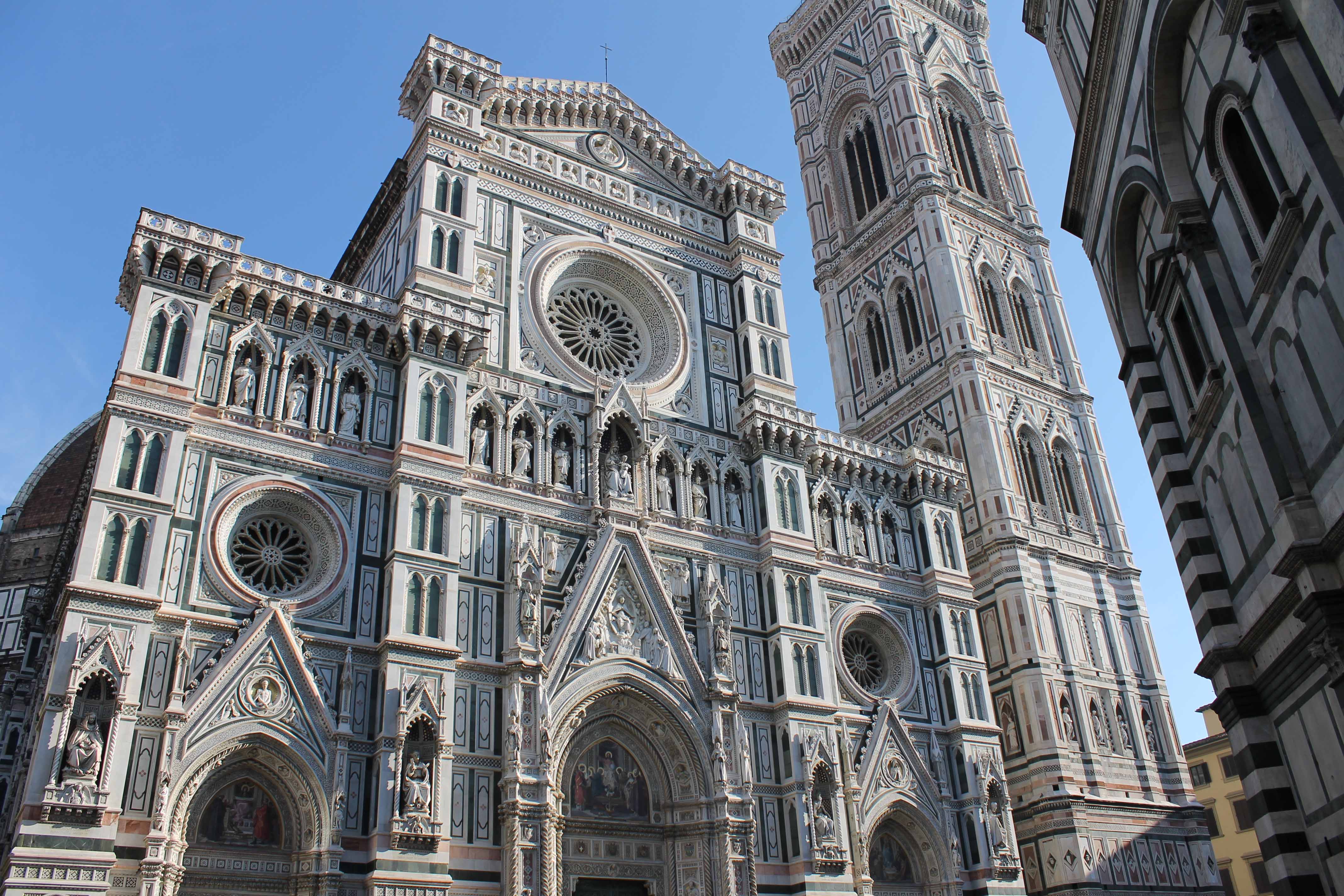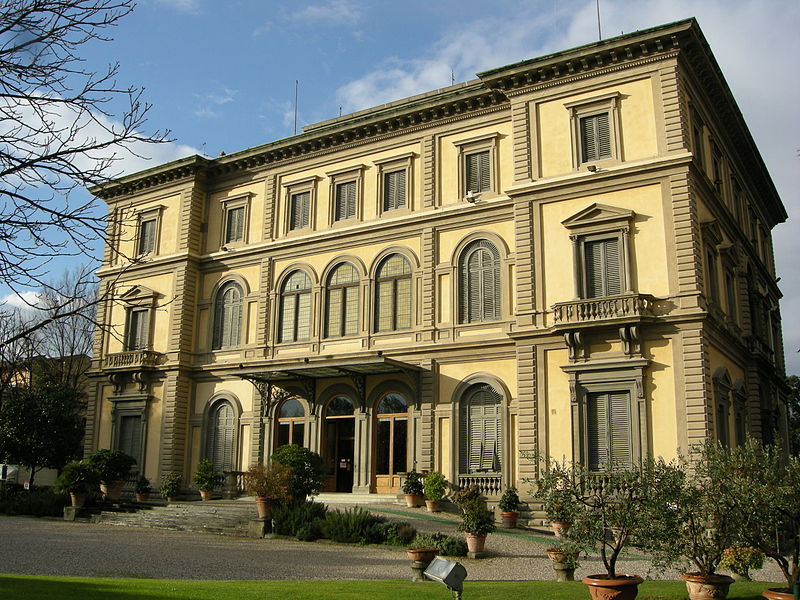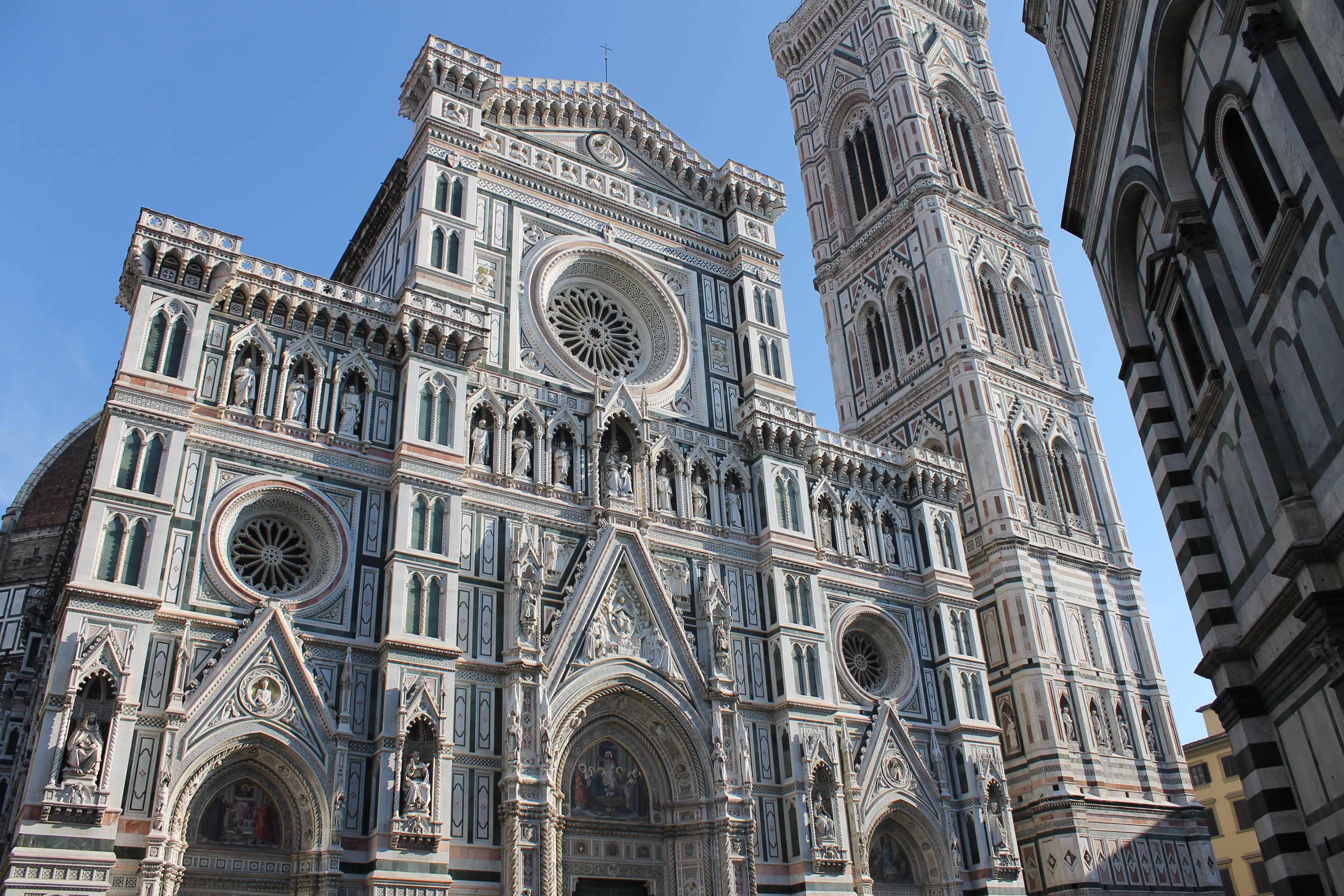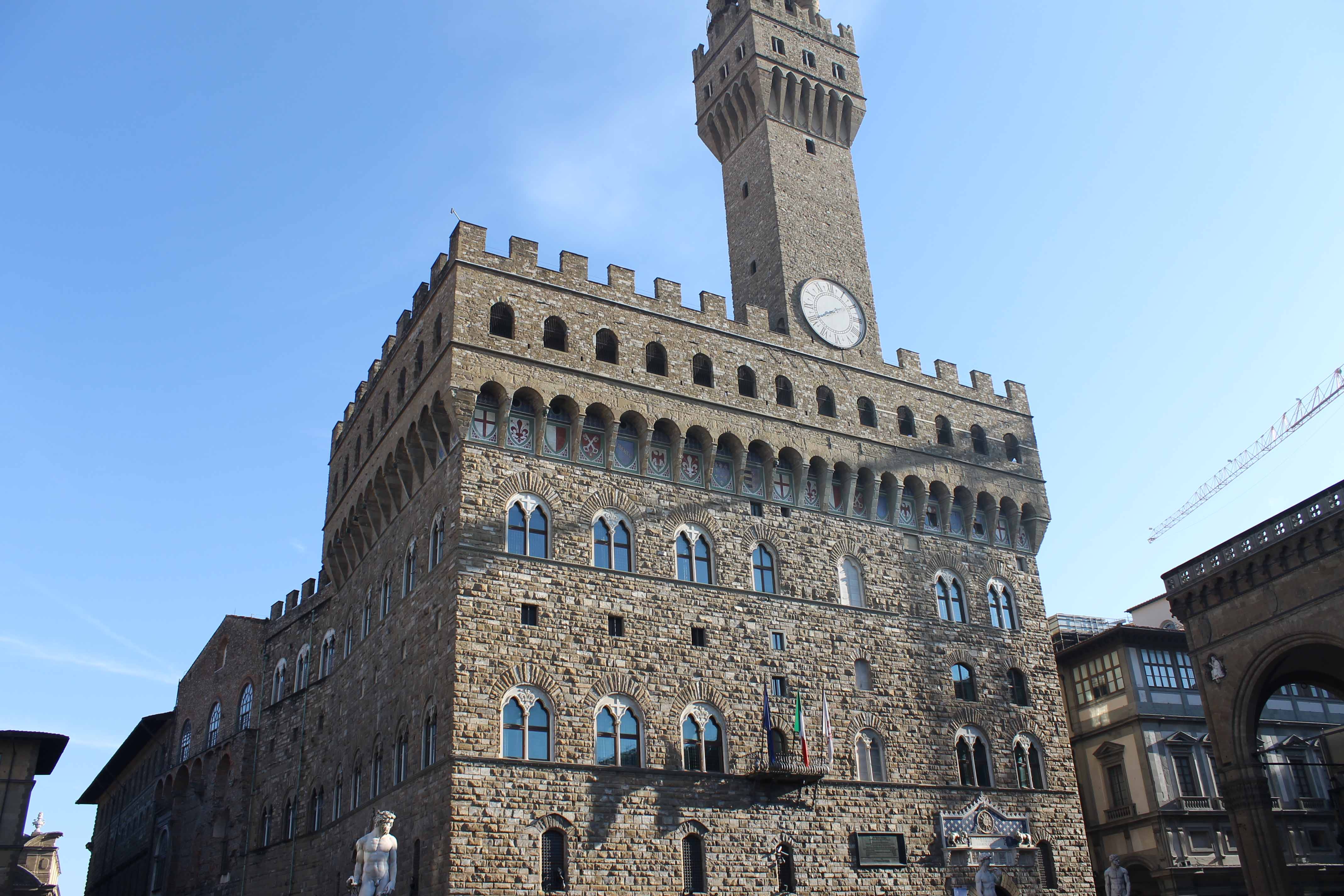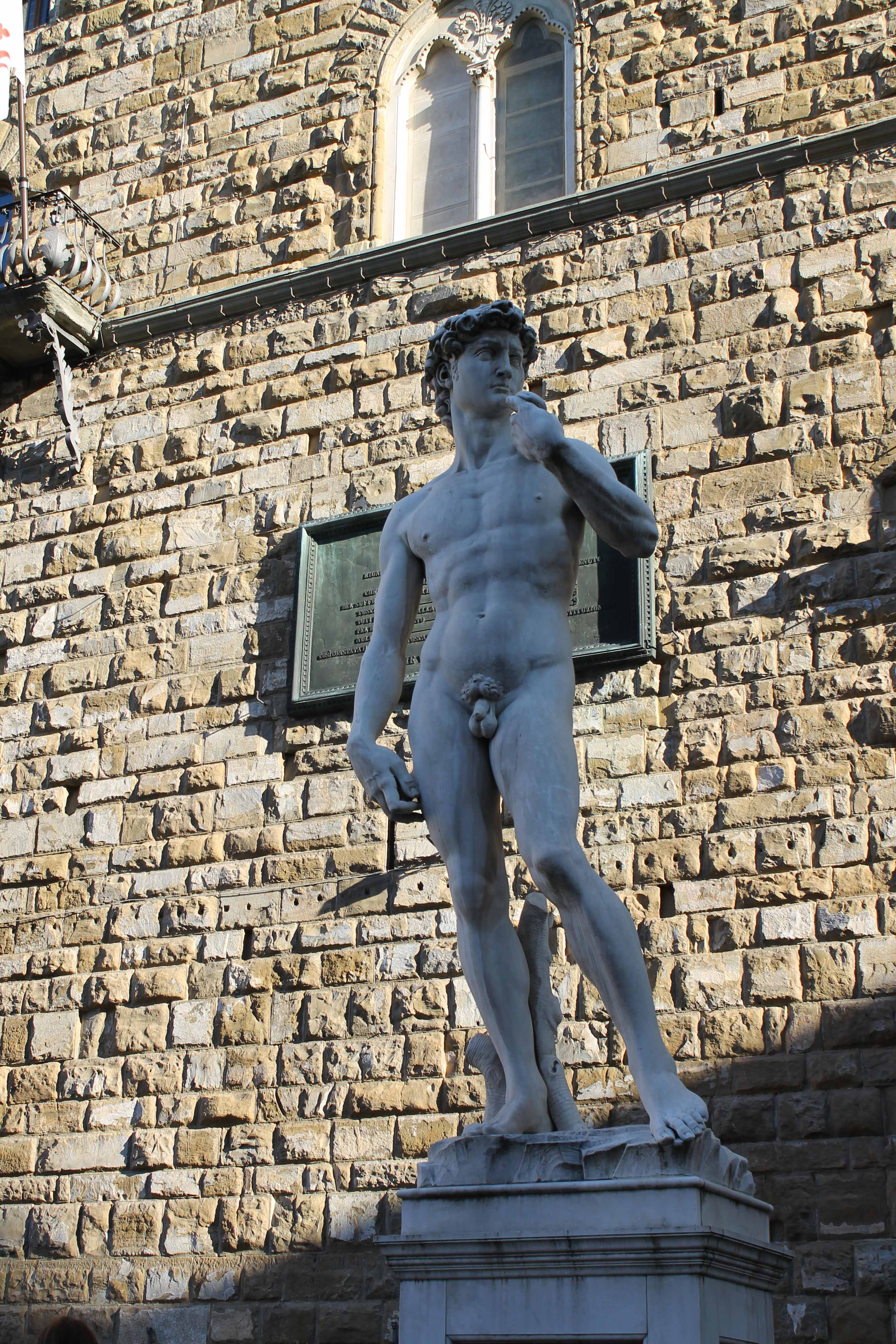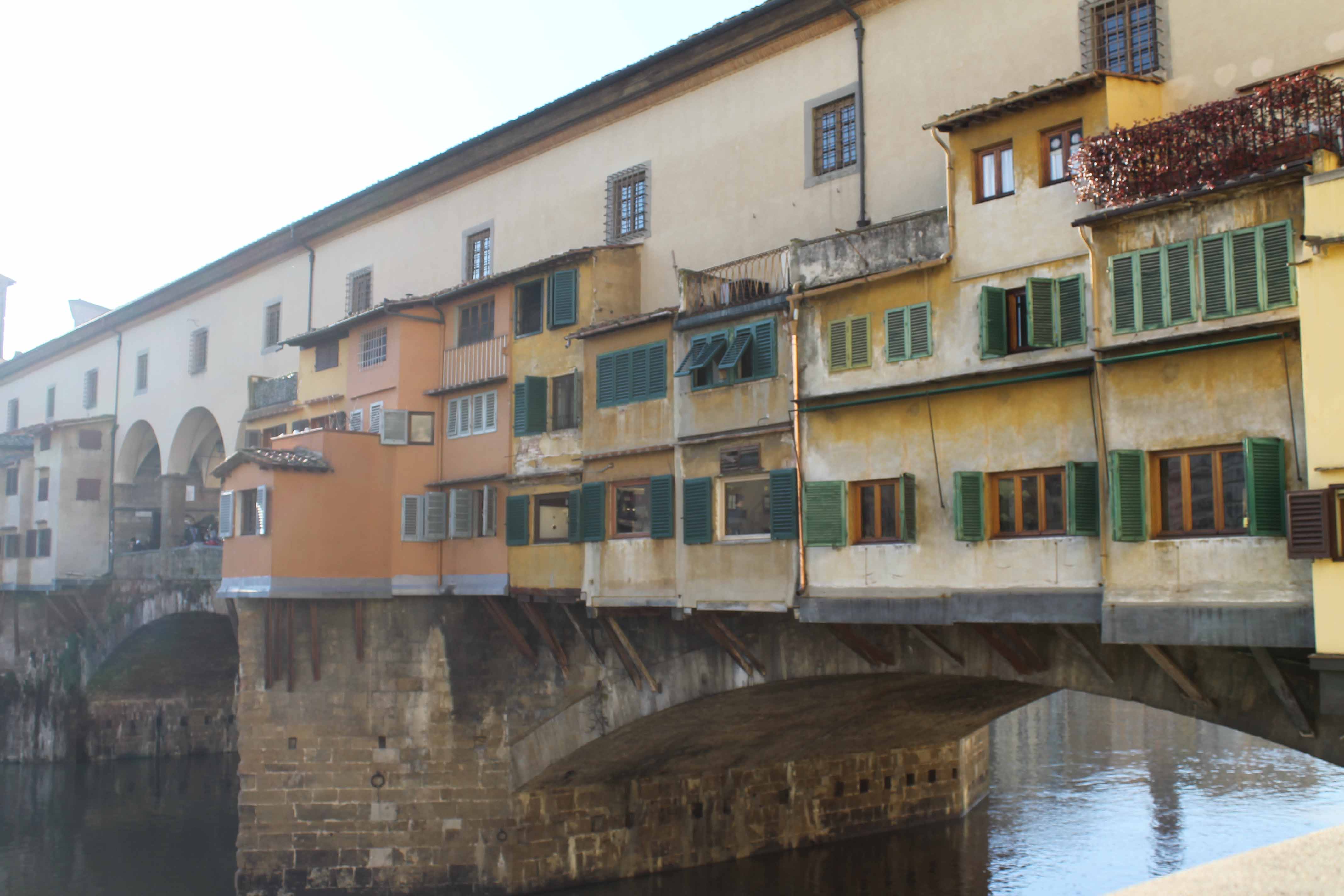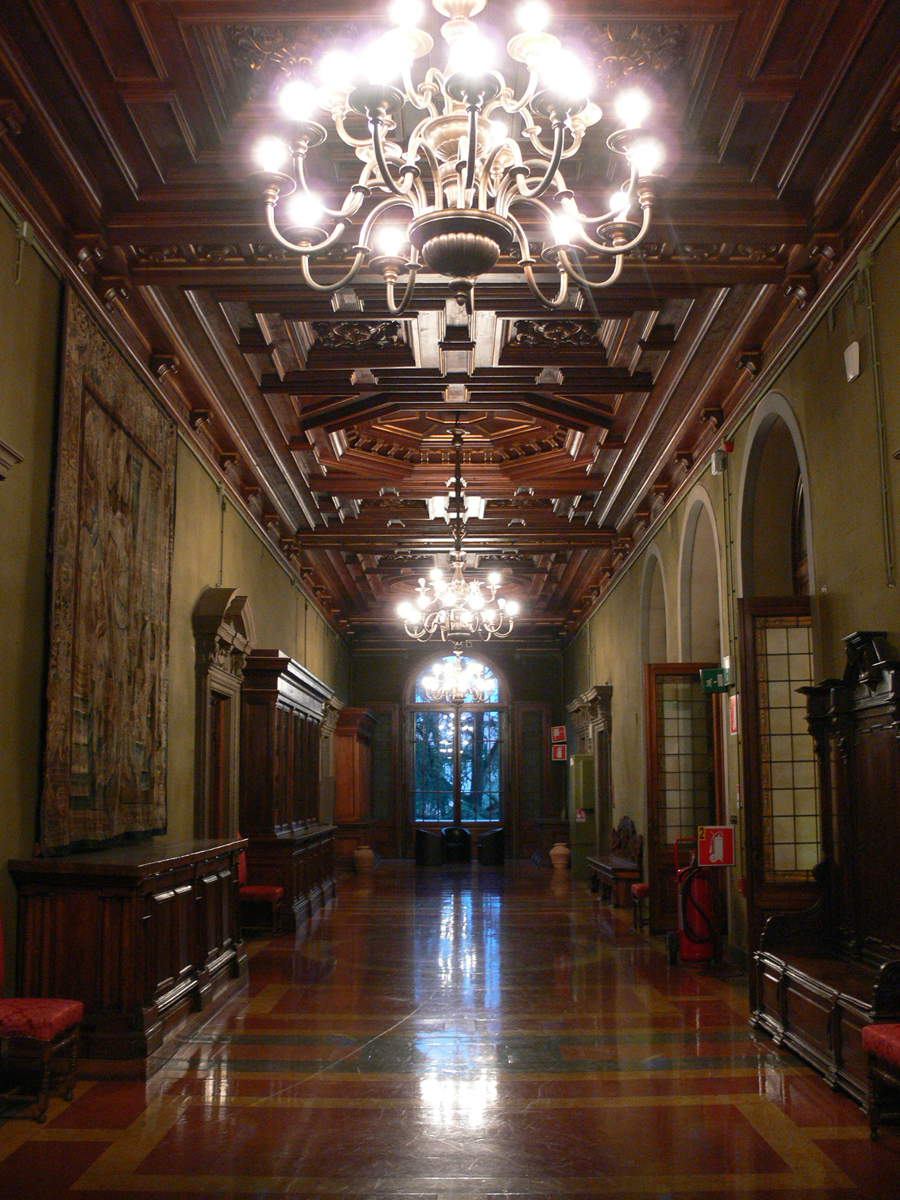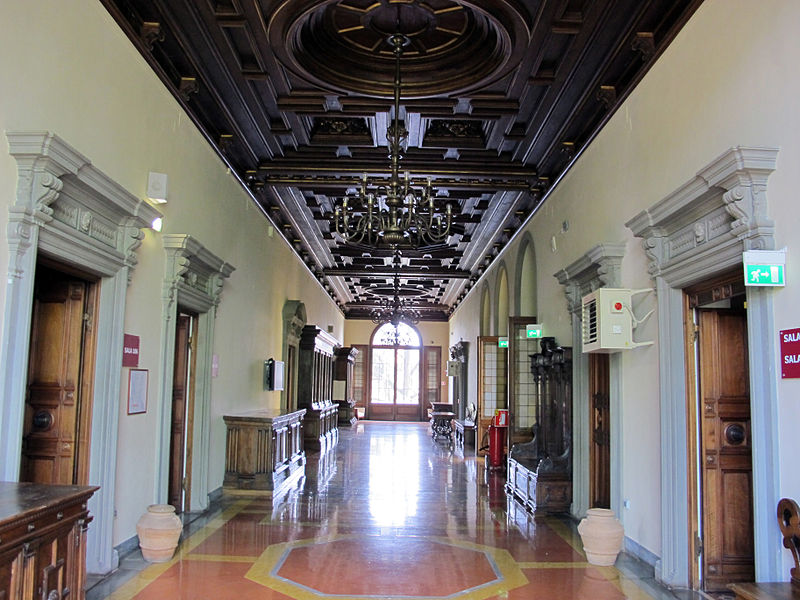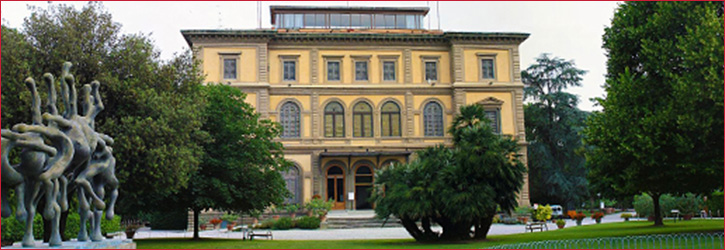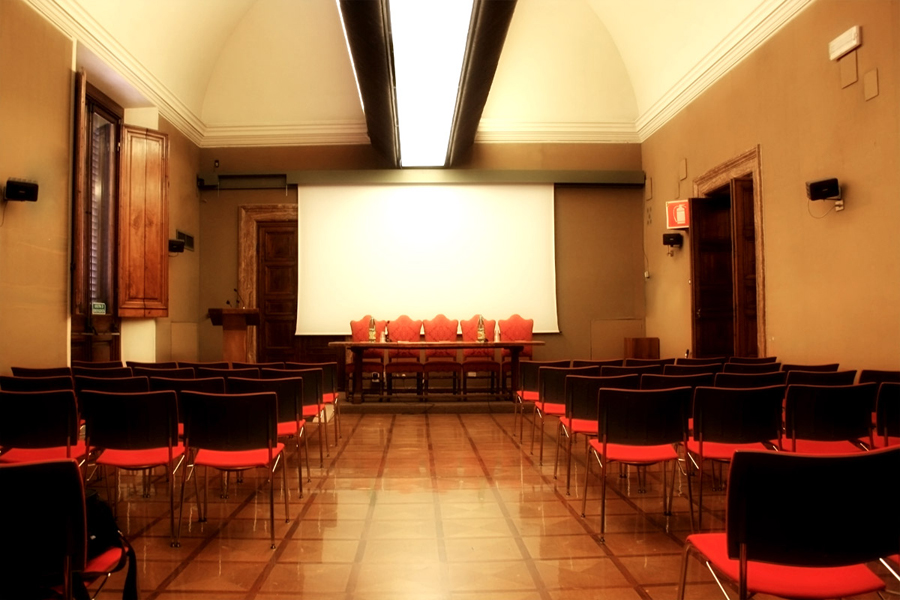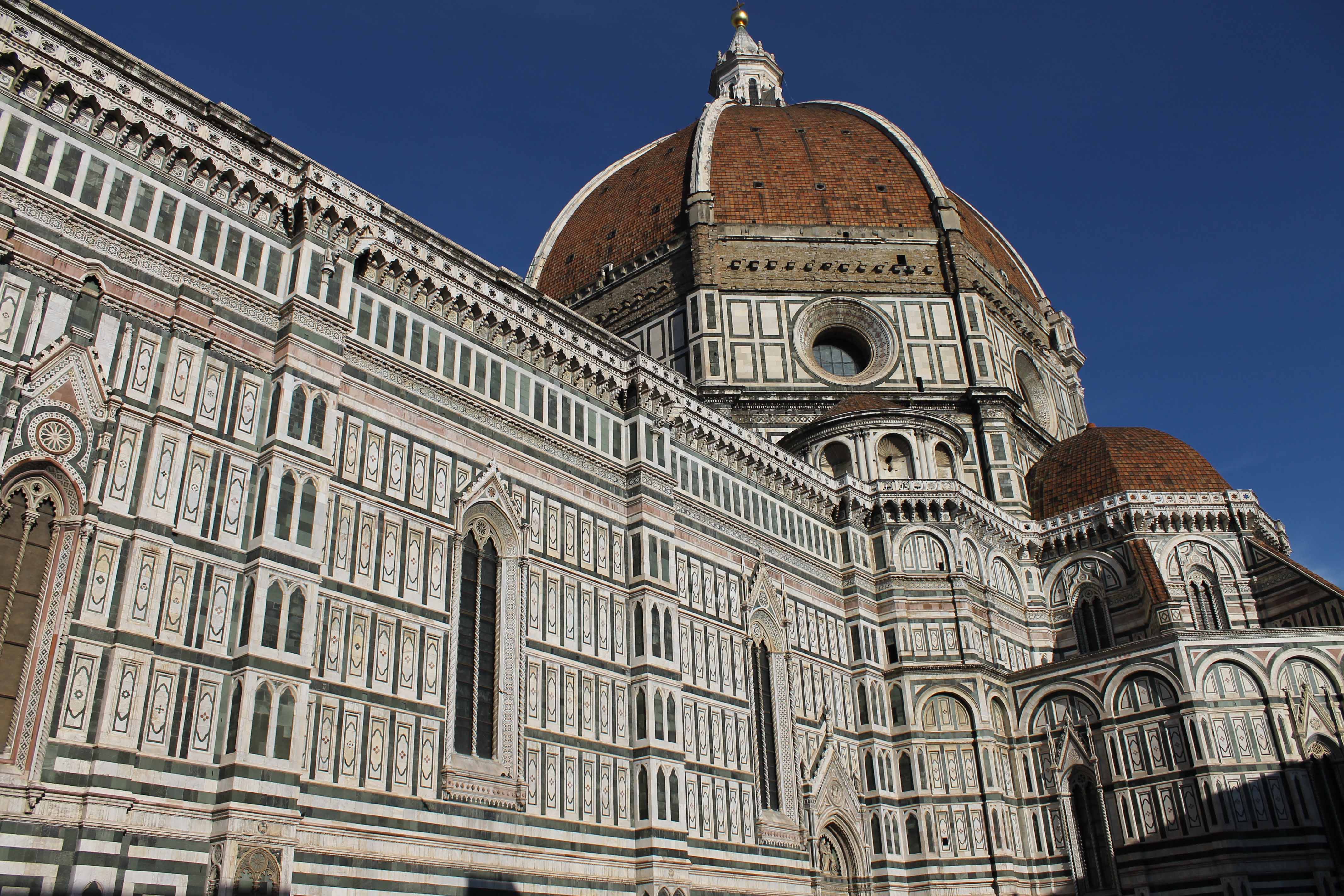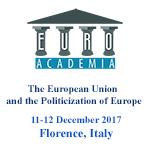Villa Vittoria – Palazzo Congressi
Firenze Fiera, Piazza Adua 1
50 123, Florence, Italy
Conference Room: OniceConference Agenda
- December 11, 2017
- 09:00 - 09:30Registration (Registration Desk – Foyer Sala Onice)
- 09:30 - 10:30Welcome and Opening Remarks - Opening Workshop: The EU and the Politicization of Europe
- 10:30 - 11:00Coffee Break
- 11:00 - 13:00Panel 1: Thinking Europe: Philosophy, History, Autonomy and Culture
- 13:00 - 14:30Tuscan Specialties Lunch (Restaurant)
- 14:30 - 16:30Panel 2: European Cultural Heritage and Intellectual History: Places and Narratives of Europeanness
- 16:30 - 17:00Coffee Break
- 17:00 - 19:00Panel 3: Populism, Nationalism and Right-Leaning Parties in Europe: Assessing the Impact of Brexit and Voting Behavior in Europe
- 19:00 - 19:45Aperitivo & Welcome Drink in Florence
- 19:45 - 21:00Optional Social Dinner Out in Florence
- December 12, 2017
- 09:00 - 11:00Panel 4: Assessing the EU’s Normative Influence and External Perceptions: EU, Turkey, and the EU’s Foreign Policy Impact
- 11:00 - 11:30Coffee Break
- 11:30 - 13:00Panel 5: Europeanization, the Future of European Enlargement and the EU: Normative Power, Conditionality and Foreign Influence
- 13:00 - 14:30Tuscan Specialties Lunch (Restaurant)
- 14:30 - 16:30Panel 6: The Eurozone Crisis. Transformative Impact on the European Project and Model(s) of Capitalism
- 16:30 - 17:00Coffee Break
- 17:00 - 19:00Panel 7: European Identity Making and the EU: Inclusion / Exclusion Nexuses, Security, Self-Determination and the Making Of the Other in the EU
- 19:00 - 19:30Concluding Remarks and Discussions
- 19:30 - 21:00Optional Social Dinner Out in Florence
- December 11, 2017
The European Union and the Politicization of Europe (6th Edition)

- Conference Description
- Participant’s Profile
- Registration and Fee
- Social Activities and Publication
- Important Dates
- Venue and Directions
- Conference Program
- Panel 1
- Panel 2
- Panel 3
- Panel 4
- Panel 5
- Panel 6
- Panel 7
The 6th Euroacademia International Conference
The European Union and the Politicization of Europe
11 – 12 December 2017
Villa Vittoria – Palazzo Congressi, Florence, Italy
Conference Description
The European Union was described by Jacques Delors as an ‘unidentified political object’ and by Jose Manuel Barroso as the first ‘non-Imperial empire’. The descriptors assigned to the European Union are creative and diverse yet the agreement on what is the actual shape that the EU is taking is by no means an easy one to be achieved. Historical choices shaped and reshaped the size and functioning of the EU. The goal of an emerging ‘ever closer union’ is still in search for the paths of realization while pragmatics compete with ideal goals setting. The agreement seems to come when it’s about the growing impact of the decisions taken in Brussels on the daily lives of the European citizens and the increasingly redistributive outcomes of the policy choices inside the EU. These dynamics created the framework for the politicization of Europe and opened a vivid debate about the direction and proportions of such a process.
The politicization of Europe is a process that takes various shapes and addresses significant puzzles. While it is clear that the EU doesn’t resemble a state, it is less clear if the decisions that shape its policies are configured by Pareto efficient outcomes or by dynamics that are intrinsic to a political system and defined by emerging party politics within the European Parliament. The democratic problem or the democratic deficit issue was and continues to be one of the main challenges facing the European Union in any terms or from any position is understood or described. As some argue, the lack of fully democratic procedures led to Brexit while many European citizens largely are disenchanted with the way decisions are made in the EU. The problem of accountability for the decision making inside the EU was there from the beginning and it emerged gradually as more emphatic on the agenda of vivid debates as the powers of the EU have grown after the Maastricht Treaty. This was concomitant with a growing disenchantment of citizens from member states with politics in general, with debates over the democratic deficits inside member states, with enlargement and with a visible and worrying decrease in voters’ turnouts at both national and especially European elections. To all that, recent times added the economic crisis and a re-emergence of nationalism in many European countries and an increase in anti-EU sentiments. The optimist supporters of EU believe in its power to constantly reinvent and reshape in deepening integration while the pessimists see either a persistence of existing problems or a darker scenario that could lead in front of current problems even to the end of the EU as we know it.
The 6th International Conference ‘The European Union and the Politicization of Europe’ aims to survey some of the current debates in EU studies and addresses once more the challenges of the EU polity in a context of multiple crises that confronted Europe in recent years. It supports a transformative view that invites to dialogue balanced weights of optimism and pessimism in a belief that the unfold of current events and the way EU deals with delicate problems will put an increased pressure in the future on matters of accountability and will require some institutional adjustments that address democratic requirements for decision making. However in its present shape and context the EU does not look able to deliver soon appropriate answers to democratic demands. In a neo-functionalist slang we can say as an irony that the actual crisis in the EU legitimacy is a ‘spillover’ effect of institutional choices made some time before. To address the EU’s democratic deficit however is not to be a skeptic and ignore the benefits that came with it but to acknowledge the increasing popular dissatisfaction with ‘occult’ office politics and with the way EU tackles daily problems of public concern while the public is more and more affected by decisions taken at the European level. The question to be addressed in the conference is weather the increasing politicization of the EU will lead to a full democratization of EU politics or to increasing fragmentation and division.
Is the EU becoming an increasingly politicized entity? Is the on-going politicization of Europe a structured or a messy one? Do political parties within the European Parliament act in a manner that strengthens the view of the EU as an articulate political system? Are there efficient ways for addressing the democratic deficit issue? Can we find usable indicators for detecting an emerging European demos and a European civil society? Does a Europeanization of the masses take place or the EU remains persistently a genuinely elitist project? Did the Lisbon Treaty introduced significant changes regarding the challenges facing the EU? Can we see any robust improvements in the accountability of the EU decision making processes? Are there alternative ways of looking at the politicization processes and redistributive policies inside the EU? What is the impact of Brexit for the future of the EU? Can we expect a future of European solidarity or division? These are only few of the large number of questions that unfold when researchers or practitioners look at the EU. It is the aim of the 6th International Conference ‘The European Union and the Politicization of Europe’ to address in a constructive manner such questions and to offer a platform for dissemination of research results or puzzles that can contribute to a better understanding of the on-going process of politicization within the European Union.
The conference welcomes papers advancing contributions from the widest area of inquiry related to the EU, from theoretic contributions and methodological proposals to case studies at EU level and regional or national levels. It aims to be an interdisciplinary event that adds value to the debate about the present and future of the EU based on the firm belief that deepening the specialized dialogue on EU topics leads to asserting the European critical thinking and to a better understanding of European realities. Papers addressing current challenges from the Eurozone crisis to Brexit or re-emergence of nationalist parties and attitudes in member states as well as security studies and IR papers are especially welcomed.
Participant’s Profile
The conference is addressed to academics, researchers and professionals with a particular interest in Europe, Europe related and European Union topics from all parts of the world. As the nature of the conference is intended to be multidisciplinary in nature, different academic backgrounds are equally welcomed. Cultural approaches, political studies, critical studies, out of mainstream approaches and artistic/literary contributions to the better understanding of Europe in its past present and future dimensions are all equally welcomed. Euroacademia favors alternative and innovative thinking proposals and non-mainstream methodologies.
Post-graduate students, doctoral candidates and young researchers are welcomed to submit an abstract. Representatives of INGOs, NGOs, Think Tanks and activists willing to present their work with impact on or influenced by specific understandings of Europe and/or the European Union are welcomed as well to submit the abstract of their contribution.
Abstracts will be reviewed and the participants are selected based on the proven quality of the abstract. The submitted paper for the conference proceedings is expected to be in accordance with the lines provided in the submitted abstract.
Registration and Fee
Registration Process is Now Closed
The Participation Fee Includes:
- the registration fee
- participant’s package with all the materials for the conference
- full access to the conference proceedings
- eligibility for inclusion in the conference proceedings published volume
- a copy of the published volume
- access to Euroacademia discussion group and newsletters
- coffee brakes for all the duration of the conference
- welcome ‘aperitivo’ drink in Florence on 11th of December 2017
- Tuscan lunch on 11th of December 2017 at Restaurant
- Tuscan lunch on 12th of December 2017 at Restaurant
- certificate of attendance
- access to optional social program
Unfortunately, Euroacademia has no available funds for covering transport and accommodation to/in Florence. Participants are responsible for securing funding to cover transportation and accommodation costs during the whole period of the conference. Official invitation letters can be sent by Euroacademia to the financing institutions of selected participants to confirm the selection and participation in the conference upon request.
Social Activities
A specific spot in the conference program will be dedicated to social networking and therefore all the participants interested in setting or developing further cooperation agendas and prospects with other participants will have time to present and/or promote their project and express calls for cooperation.
A specific setting (Social Corner) for promotional materials connected with the topic of the conference will be reserved for the use of the participants. Books authored or edited by the participants can be exhibited and promoted during the whole period of the conference and can also be presented within the conference package based on prior arrangements.
Photos and videos will be taken during the conference and the organizers will consider through the participation of selected presenters or members of the audience that the agreement for being photographed or filmed during the event was granted through registration to the event. Please notify the organizers in written form prior to the the event if you are a confirmed participant and would prefer otherwise.
An optional dinner and a social event will be organized for the first and second evenings of the conference in a typical Italian cuisine restaurant as optional program for the willing participants. The social dinner will be held based on participant’s confirmation and it costs around 25 Euro to be covered individually by participants.
Publication:
Selected papers will be published in an electronic volume with ISBN after the confirmation of the authors and a double peer-review process based on an agreed publication schedule. All the papers selected for publication should be original and must have not been priory published elsewhere. All participants to the conference will receive a copy of the volume.
Specific selected papers will be also published in CEJISS (Central European Journal of International & Security Studies)
About CEJISS
Formally launched in January 2007, CEJISS is designed as a double-destination scholarly bridge. The first bridge was constructed with Central Europe (Czech Republic, Hungary, Poland and Slovakia) in mind, focusing on increasing the audience for Central European scholars. In this regard, CEJISS is making a substantial impact as each issue attracts attention in some 45,000 people in nearly 160 countries. However, CEJISS is not Central European centric and invites scholars from around the world to contribute. This has meant that just as Central European scholars now have an easier time gaining a footing outside of the region, so international scholars also have an easier time getting in and making an impact here. With a mere two decades separating our times from the ‘darker’ Cold War years, CEJISS aims to contribute English language perspectives to the peoples of Central Europe and give the latter the amplification their research deserves.
| Important Dates | |
|---|---|
| 1st of November 2017 | Deadline for Submitting Panel Proposals |
| 10th of November 2017 | Deadline for Paper Proposals: 300 words abstracts and details of affiliation |
| 11th of November 2017 | Latest notification of acceptance |
| 15th of November 2017 | Sending the Registration Form |
| 20th of November 2017 | Payment of the conference fee |
| 1st of December 2017 | Sending the draft paper to be uploaded on the conference website |
| 5th of December 2017 | Publication of the conference program and uploading the draft papers on the website |
| 11th of December 2017 | The conference commences at 9.00 am |
Venue and Directions
The conference will take place in the conference premises of the beautiful Villa Vittoria – Palazzo dei Congressi, centrally located in the historic heart of Florence, few steps away from the Santa Maria Novella church and the amazing Duomo with its Cupola del Brunelleschi and Campanile di Giotto making easily accessible within a walking distance any part of the amazing Renaissance treasure of the historic center. Galleria dell’Accademia, where the original of the astonishing masterpiece of Michelangelo – David – can be admired in all its splendor and perfection, is within a few minutes walking distance. In short walking distances can be easily reached the Piazza della Signoria and the Uffizzi Galery containing the largest collection of Renaissance art in the world.
Located inside the 18th century Villa Vittoria – Palazzo dei Congressi boasts prestigious auditoriums and is surrounded by a centuries-old garden. The charming interiors of the venue are characterized by a combination of Florentine antique furniture with modern and functionally designed halls. Villa Vittoria and its adjacent Lemon House are connected to the Fortezza da Basso through a pedestrian square, thus forming a conference area which is completely accessible on foot, in the heart of the city. It is a luxury establishment where the secret ingredients of tradition, history and modernity are blended in perfect proportions and surrounded by marvelous edifices that host the largest Renaissance art collections in the world.
Villa Vittoria – Palazzo dei Congressi
Firenze Fiera, Piazza Adua, 1,
Florence, Italy, 50 123

A city-size shrine to the Renaissance, Florence is an amazing lively museum filled with frescoes, sculptures, churches, palaces, and other monuments from the richest cultural flowering the world has known. Names from its dazzling historical past—Dante, Michelangelo, Galileo, Machiavelli—are some of the most resonant in a list that would be impossible to present exhaustively.
But to see the Tuscan capital simply as Europe’s preeminent city of art would be to ignore not only its role as a dynamic and cosmopolitan metropolis, but also to overlook its more unsung charms—Italy’s most visited gardens (and its best ice-cream parlor), idyllic strolls on balmy summer evenings, a broad range of specialty shopping, sweeping views over majestic cityscapes, eating experiences that range from historic cafés to the country’s most highly rated restaurants, and the kind of seductive and romantic pleasures that somehow only Italy knows how to provide.
Florence is the best place to discuss and affirm culture and critical thinking as it is a beautiful place that significantly shaped the formation of modern identity of Europe through humanism, love for beauty, amazing arts and craftsmanship, respect for the past and a look into the future.
See full information about the conference Location & Map:
HERE
Conference participants are responsible for arranging the accommodation and travel to/in Florence.
Conference Program
The Conference Agenda is available in the RIGHT SIDEBAR.
The conference program with abstracts and available draft papers is accessible below by clicking on the panel number tabs and individual presentations.
Thinking Europe: Philosophy, History, Autonomy and Culture
- Passage to a New Europe during the First World WarThe outbreak of the war was by many literates understood as a loss of a unified culture, while others kept recognizing a European culture or a common civilization. In the paper, I pay attention to wartime visions of a future Europe, mainly in Central Europe and Britain. Especially is followed the notion of a New Europe and its different implications regarding national self-determination. The paper rounds up with further comments on the outcome of the war and its impact on thinking Europe in a broader sense as well as on the European idea of a shared federation.Mats Andrén, Department of Literature, History of Ideas, and Religion, University of Gothenburg, Sweden
- The Possibility of Philosophy of Nationality through Bertrando Spaventa’s Thought and its Alternativethe question is whether a national philosophy still exists in a national context; if there is a national philosophy what makes it to have a national character. Can we still talk about national philosophy and what makes a philosophy to be a national? The presentation tries to answer these questions. Besides, it tries to suggest a new concept in substitution for national philosophy. This proposed concept is the philosophical-culture, which contains the universal and particular in itself.Sevgi Doğan, University of Pisa, Italy
- The Vigils of Lights: The Question of Europe’s Universalism and its Philosophical Timelessness as Undecidability of the Human Subject; Jacques Derrida’s Messianism and the Crisis of European Identity as the Debt of Capital and the Time of Liberal DemocracyIf the spirit of Europe and its European values is to continue burning its flames, and not turn into ash and cinders, a new 'European subject' is needed in order to prevent a new nihilism since the advent of the Nietzschean death of God and Heidegger's apocalyptic pronouncement of 'only the gods can save us'. What is the philosophical consequence of Deconstruction on the European Enlightenment project of Universalism? The latter set of questions are, what can Derrida's 'messianism without messianism' on his philosophy of time and the democracy to come do to solve this crisis?Jack Robert Coopey, Durham University, UK
- The European Union and the Politization of Europe: A Promise of Regionalisation under a New Common Roof, Caught in New Nationalism?This paper is an account of historic memories as perceived as a bystander, then a politically active citizen, then as a management consultant, eventually contributing with his expertise to the turnaround of a European regions. In this presentation, the author reviews the history of the European Union. A history survived live. A memory partly fed by information publicly available from the media, and partly received as information from insiders and close bystanders, plus own brief interventions in processes. The narration of the Unification Process as communicated to and perceived and memorized by the peoples is accounted again, in order to hint upon the origins and causes of ill and counterproductive developments further to be investigated.Gerhard Eichweber, Silva Plan / Value Group, Switzerland
European Cultural Heritage and Intellectual History: Places and Narratives of Europeanness
- Internationalism and the European Cultural Public Sphere :The Heritage of the European Intellectual History of the Late Nineteenth and the Early Twentieth CenturyThrough examples, I demonstrate how this European republic of letters worked, in exchanging ideas and sharing universal ideals in the era before the rise of nationalism in the First World War. I especially depict how nationalism can play a significant role in the activities of intellectuals in small nations. In the periphery, being a cosmopolitan also meant having enough symbolic capital to fight one’s corner in the national sphere. An important way intellectuals could do this was by allying themselves with foreign writers and their work. Since we are currently experiencing the revival of nationalism, this heritage of European intellectual history is worth discussing in the contemporary situation as well.Jukka Kortti, University of Helsinki, Finland
- Please, Do Not Forget Eugenio Montale!In the new publication, 'Melinda Camber Porter in Conversation with Eugenio Montale' in Milan in 1976 (Blake Press 2015) we are able to look back at events of the past and can apply them to politics today. Great insight is present for all to see in Eugenio Montale’s Nobel Prize Lecture in 1976, presented in both English and Italian in this new book, along with his conversation with Melinda Camber Porter on art, journalism, politics, poetry and society (Montale and Camber Porter 2015).Joseph R. Flicek, Director of Melinda Camber Porter Archive of Creative Works, New York
- Paris as a Scenery of Rebelliousness During the Inter-War Period (1918-1933)The Great War simbolised the crystallization of the social, economical and political changes and these changes were known by writers as the crisis of the middle class consciousness, or crisis of the bourgeois society. At the same time, Paris became the meeting point of different artistic and literary movements that represented new perspectives. To a new generation of young men, the war meant the beginning of an era, signed by the deception of the liberal society that were the origine of that war. This Generation of writers, such as Ernest Hemingway, Gertrude Stein and Francis Scott Fitzgerald give a portrait in their work of a new way to see the European Society, and so Paris became the scenery where this new Generation of writers give a main role to the rebelliousness, as an ethos that becomes the heart of the literary production of the decade.Andrea Victoria Russo, UBA / IDAES- UNSAM/ Jagiellonian University
- What is the ‘Wright’ Modernism of the Mid-Century Cold War? American Design in Mid-Century Cold War PropagandaThis paper researches the mid-century Cold War propaganda design debate over the ‘true American Style’ in the U.S. between the Museum of Modern Art (MoMA) curator, Edgar Kaufmann Jr., House Beautiful magazine’s editor, Elizabeth Gordon, and the designer, Frank Lloyd Wright.Heather Elisabeth, Parsons School of Design, New York
Populism, Nationalism and Right-Leaning Parties in Europe: Assessing the Impact of Brexit and Voting Behavior in Europe
- Antidotes to Brexit and Nationalist Populism: Social Europe and Transformative ChangeThe presentation will seek to outline a vision of a rekindled European Project and the antidote to Brexit and populism. The presentation will draw upon my forthcoming book Britain and Europe at a Crossroads: The Politics of Anxiety and the Future of Radical Democracy (Policy Press)Andrew Ryder, Corvinus University Budapest, Hungary / University of Birmingham, UK
- Brexit and the Democratization of the EU RegimeIn this paper, I advance that Brexit has at least two different dimensions: a ‘British Brexit’ that is the culmination of the UK’s long-term awkward position in the EU and a ‘European Brexit’ that reflects an EU-wide rise of Euroscepticism. Focusing on the latter, I then argue that, by transferring competences to the European level, European integration tends to weaken democratic accountability at the national level. Moreover, citizens’ loss of power at the national level is not compensated at the European level due to the absence of a European popular mandate.Pierre Haroche, King's College London, UK
- Populist Tribes: Protest Voting as a Collective ActionWe claim that economic grievances mature in localised social context. Hence, we frame protest vote as a collective action problem, where voting decisions emerge from the interplay between economic loss and in-group solidarity. Individuals suffering economic grievances engage in the individually costly action of protest voting if the expected collective reward is sufficiently high, i.e. if they expect that a critical mass of protest voters can be achieved. As a result, for a given level of individual economic loss, the share of protest vote is higher in communities experiencing high levels of social cohesion, with the latter acting as a mechanism enforcing the mutual norm of voting for a protest party.Carlo Altomonte , Bocconi University, Milan, ItalyGloria Gennaro, Bocconi University, Milan, Italy
- Vote for the Far-Right Parties in the 2014 European ElectionsSince the recent European elections were conducted amid a multilevel crisis, it was expected that the outburst of the Great Recession in conjunction with the decline of the mainstream political system would create more political opportunities for the right-wing family. To investigate the factors that tend to determine the positive electoral presence of these parties, we will focus on the aspects of the bidirectional relationship between the demand and supply-side theory. To illustrate that, according to the demand-side perspective, we will discuss the extent of immigration and unemployment salience, issues that monopolized the policy agenda of the recent European elections.Evgenia Eleni Mavropoulou, Department of Government, University of Essex, UK
Assessing the EU’s Normative Influence and External Perceptions: EU, Turkey, and the EU’s Foreign Policy Impact
- Euroscepticism in the Turkish PressThe study looks at 5 national Turkish dailies by gathering the news reports from the PRNet online database. Both opposition and pro-government papers will be included. Findings are analysed within the context of the history of Turkey-EU relations, Turkey’s own internal and regional issues in recent years, and the ongoing political clashes inside the EU.Alaaddin F. Paksoy, Anadolu University, Eskişehir, Turkey
- The Nostalgia of the Empire: Neo-Ottomanism, Euro-skepticism and Desecularized Nationalism in Contemporary TurkeyThe case of Turkey and its ruling party, the AKP, is in this perspective enlightening. All too often reduced to a “shift from pluralism to Islamic populism”, the recent events in the country testify less of a shift, than of the reframing of a long tradition of negation and containment of social antagonisms.Martin Noel, Ecole des Hautes etudes en Sciences Sociales, Paris / Institut Catholique de Paris
- European Foreign Policy Has Already ‘Saved’ the Foreign Policies of Small States. Now it is Saving the Foreign Policies of the Large Ones TooConsidering that the foreign policies of small states are already ‘saved’ , this paper seeks to explore the pattern of large ones. By looking at the Europeanization in the context of national foreign policies, by describing ‘salvage’ cases of small and big states within the EU area, the research also argues why in the latter‘s case European Foreign Policy (EFP) is ‘saving’ itself.Migena Pengili, Independent Researcher in International Relations and Security Studies, Italy
- A Critical Analysis of the EU-Turkey Deal on Irregular Migration: Is the EU a Successful ‘Norm Entrepreneur’?The aim of the presentation is to critically re-evaluate the EU’s international identity claims in the light of the readmission regime put into effect by the EU-Turkey Deal. The paper argues that the EU-Turkey deal on refugees has far-reaching implications for the EU’s international identity as the outcome of this initiative has a critical impact on whether the EU represents a successful ‘norm-entrepreneur’.Beyza Ç. Tekin, Galatasaray University, Department of International Relations, Istanbul, Turkey
- Reassessing Turkey’s European Union Candidacy: The Case of EU-Turkey Refugee DealIn this paper, I focus on Turkey-EU Refugee Deal as a case of study. First I discuss this process through the lens of the EU enlargement theories and test their recently developed assumptions particularly after 2009 Eurocrisis. Secondly, I delve into the question of why and how Turkey’s domestic problems lead to a Eurosceptic membership perspective.Şükrü Yurtsever, Gebze Technical University, Turkey
Europeanization, the Future of European Enlargement and the EU: Normative Power, Conditionality and Foreign Influence
- Politicizing Europe: Normative Conditionality in the EU Institutions’ Interpretations of Europe(-anness)Building on an analysis of institutional documents, the paper investigates how the notions of “Europe” and “Europeanness” have been interpreted since the inception of the EU and, in fine, politicized through the implementation of normative conditions. This analysis eventually led to a new, up-to-date model of the conditions that a State has to meet to be considered “European”, which further highlights the institutional conceptualization of Europe(-anness).Annie Niessen, European Studies Unit, University of Liège, Belgium
- The Europeanization of BalkansOversimplifying the Europeanization process looking for culprits instead of being attentive to real issues on the ground, is a dead end road serving none, either Europe or the Balkans as a region. The Balkan accession candidate countries are unfortunately, stuck in a complex and heavy Europeanization process and agenda with with two sign poles marking the course: blatant EU intervention and an absent political economy mechanism on the ground in the accession candidate countries that will allow local actors to ring about the needed reforms and drastic changes. Realities on the slippery ground of the Balkans and high value attached to bringing the Europeanization process to fruition for the EU ensure that the drawn out process of accession will continue but an intelligent alternative remains to be urgently invented for both partners reach their port of call soon.George Stavri, Euro-Mediterranean Institute of Geopolitics-Euro M.I.G Nicosia, CyprusLjljana Jakovlevic, Euro-Mediterranean Institute of Geopolitics-Euro M.I.G Nicosia, Cyprus
- Scramble for (EU)rope. The Migrant Crisis or The Crisis of Migrant: Europe on The Borders of EuropeThe migrant crisis is not just a consequence of a bad policy in Europe, it is the very indicator of always-already non-existent European sovereignty. A cause and a consequence, the cause of a consequence, a cause after a consequence. The cause caused by a consequence of Europe on the borders of Europe.Igor Milić, Sant'Anna School of Advanced Studies, Pisa, ItalyLuka Nikolić, Centre for International Public Policy, Belgrade, Serbia
- Fake Europeanization of Elites and Failed Europeanization of the MassesssWhile the processes of identity making intrinsic to the creation of nation states produced a homogenizing move that propelled the created other outside its borders, the EU identity making frames internal hierarchies accommodating an internal other trough a persisting wide and growing set of dichotomies: core Europe/non-Core Europe, new Europe/old Europe, pioneers/followers, centre/periphery, cosmos/chaos. The proliferation of such dichotomies expresses the widespread though most often gratuitous European scepticism in the complementarity between wider and deeper integration.Emanuel Crudu, Euroacademia (Paris, Lucca & Brussels)
The Eurozone Crisis. Transformative Impact on the European Project and Model(s) of Capitalism
- Germany’s Ambivalent Policy Towards the Economic Problems of the Euro Area in the Light of Constructivist TheoryThis paper aspires to contribute to the discussion about the following hypotheses: H1. Germany, through the process of Europeanization, delegates the principles of ordoliberalism to supranational level, determining the behaviours of the euro area states (institutionalisation as a constraining process). Thus, ordoliberal rigorous rules of stability, become a feature of multiple identity of states. H2. German ordoliberal strategy is a normative, microeconomic theory, that has contributed to the Germany’s stability and it’s economic efficiency. On the other hand, the fixity of its rules led to a deepening of the euro zone crisis, increasing the cost of European cooperation.Justyna Bokajlo, Department of International Economic Relations and European Integration, University of Wroclaw, Poland
- Do Bail-out and Bail-in Events Fuel Cyclicity of Financial Crisis: Empirical Assessment Using Hordrick Prescott Filter from 1993 to 2012To curb the problem of liquidity in times of financial crises, two cases arise; the Bailout or Bailin, two opposite choices that elicit the analysis of their effect on moral hazard. This paper attempts to empirically analyze the effect of these two types of events on investor’s behavior. We use the Emerging Market Bonds Index (EMBI-JP Morgan), and its excess of return, to detect the change in the risk premia through Hordrick Prescott filter. The results showed the existence of cyclical trends of financial crisis fueled by bail-out and bail-in events.Amira Kaddour, Carthage University TunisiaJihene Jbenieni, Carthage University Tunisia
- The Effects of ECB’s Asset Purchase Announcements on National Government Bond YieldsThis study evaluates the effects of ECB’s asset purchase announcements on 10-year government bond yields. It covers data from 11 euro zone countries from 01/01/2007 to 31/08/2017 and distinguishes between more solvent countries (Austria, Belgium, Finland, France, Germany, the Netherlands) and less solvent ones (Greece, Ireland, Italy, Portugal, Spain).Frederik Neugebauer, WHU - Otto Beisheim School of Management, Germany
- The European Union Crisis as a Crisis of Equalityhe 2008 economic crisis weakened the regional political design but also revealed that Europe is a social union (a common world), that faces shared problems that require the equal participation of the people involved so as to implement legitimate collective decisions. The core of my argument is that such a common world requires the transfer of political sovereignty to a regional level in the form of a state or a federation to face common challenges with real common decisions.Mario Juarez-Garcia, University of Arizona, USA
European Identity Making and the EU: Inclusion / Exclusion Nexuses, Security, Self-Determination and the Making Of the Other in the EU
- The Cacophonic Concert of Europe: Between Nationalism and Grand StrategyWith today’s apparent endless succession of international crises, we need to bring fresh insights to bear on the political conversation in our less-than-golden age. The problems and crises concerning self-determination and strategy, as well as the state and its various forms, have become ever more relevant, fundamental, and far reaching. This paper will discuss these multifaceted challenges, and explore whether there is a future for "self-determining Europe," and whether this could serve as a vision for a new, regional, grand strategy.Wolfgang Danspeckgruber, Liechtenstein Institute on Self-Determination at Princeton UniversityUriel Abulof, Liechtenstein Institute on Self-Determination at Princeton University
- On Being EuropeanWhen discussing the European Identity -whatever that might be- in relation with the European Union, we hold, there are three countries that require particular attention: Russia, Turkey and the United Kingdom. The issue lying underneath the questionable participation to the European identity of these states is sometimes geographical, historical and legislative. Thus, the first question to ask is this: Is Europe a geographical construct?Ihsan Baris Gedizlioglu, John Cabot University, Rome, Italy











